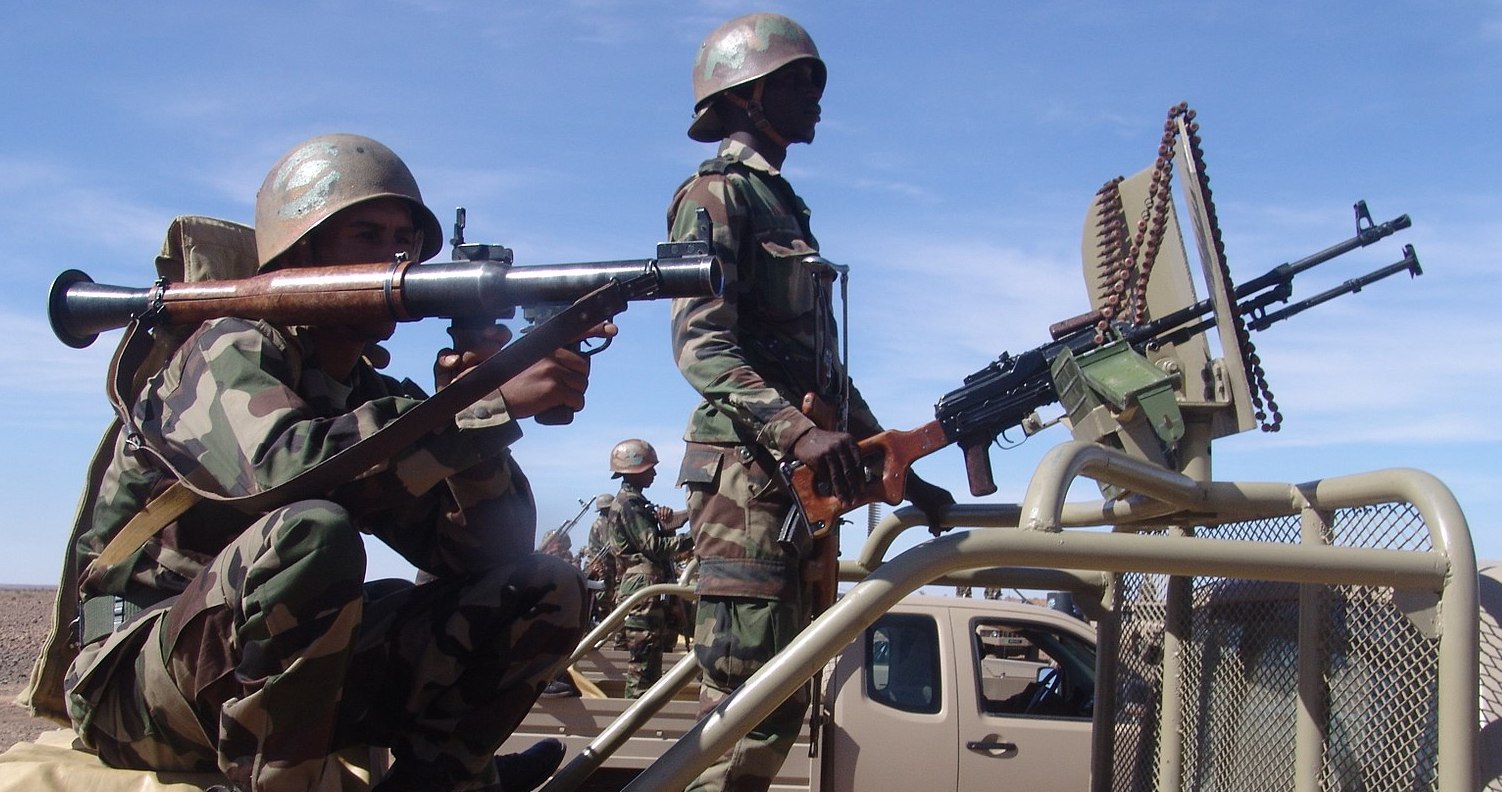
Security forces in Mali, Niger, and Burkina Faso have been accused in a rising toll of extrajudicial killings commited in the context of their battle against jihadist groups in the Sahelian region. In Mali, soldiers allegedly conducted 101 executions, 32 forced disappearances, and 32 cases of torture in the first three months of the year, the UN Mission in Mali reported—a significant increase over the last quarter of 2019.
Most of the violations occurred in heavily contested central Mali. In Niono Circle, in the Ségou region, the army reportedly killed 53 people on Jan. 27. The executions followed an attack by the jihadist group Nusrat al-Islam the day before that left some 20 gendarmes dead in Sokolo, in the same region. The army was also accused of summarily executing 46 people in Mondoro, Mopti region, near the border with Burkina Faso. Nigerien forces in Mali, under the umbrella of the multinational G5, were also responsible for 34 executions, the UN said.
On home soil, the Nigerien military are accused of killing 102 people and burying their bodies in a mass grave in an area between Inates and Ayorou in the northern Tillabéri region. Defense Minister Issoufou Katambe denied the incident, which allegedly occurred between March 27 and April 2. Inates, close to the Malian border, is where 71 Nigerien soldiers were killed in a jihadist attack on their base in December last year.
In Burkina Faso, Human Rights Watch reported the alleged execution of 31 detainees by the security forces on April 9 in the northern town of Djibo. The men were apparently killed just hours after being arrested—unarmed—during a government counterterrorism operation.
Corinne Dufka, Sahel director at HRW, labelled the incident a “brutal mockery of a counterterrorism operation that may amount to a war crime and could fuel further atrocities.”
The region’s security forces are struggling to contain a surge in jihadist attacks across the Sahel, which last year killed more than 4,000 people—up from 770 people in 2016. Inter-communal violence, in which some communities are labelled as jihadist sympathisers, has added to the toll, and to sky-rocketing numbers of displaced people.
“The security forces are mandated to protect, and protect equally,” Dufka told The New Humanitarian. “And yet we see them far too often engaging in collective punishment, in retaliatory attacks against communities for their real or perceived affiliation with armed Islamist groups.”
From The New Humanitarian, May 5





Villagers massacred in Niger
At least 20 people have been killed in attacks by gunmen on several villages in Niger, local authorities say. Tidjani Ibrahim Katiella, governor of Tillaberi region, said the assailants were riding motorbikes during the incidents on May 9. The unidentified group reportedly looted shops, stole cattle and ordered village inhabitants to flee. Since 2017 a state of emergency has been in place in Tillaberi, which borders Mali and Burkina Faso. (BBC News)
Mass killing seen in Burkina Faso prison
Local prosecutors have opened an investigation after 12 people detained on suspicion of terrorism were found dead in their police cells in west of Burkina Faso. The prosecutor for the town of Fada N’Gourma said in a statement that 25 people had been detained overnight Monday and “unfortunately, 12 of them have died during the course of the night in the cells they were being held in.” All the detained are apparently of the Fulani eithnic group, who are often accused of jihadist collaboration. (AFP)
The army meanwhile said it has killed 20 “terrorists” in a clash near the border with Niger. In a statement, the General Staff said the clash began when a patrol in Yagha province was ambushed by armed attackers.
According to UN figures, more than 850 people have been killed and 840,000 have been displaced since 2015 in attacks in Burkina Faso. (Anadolu)